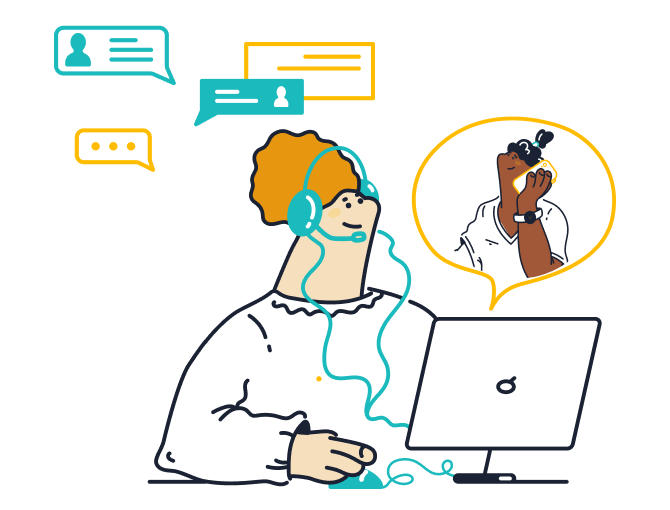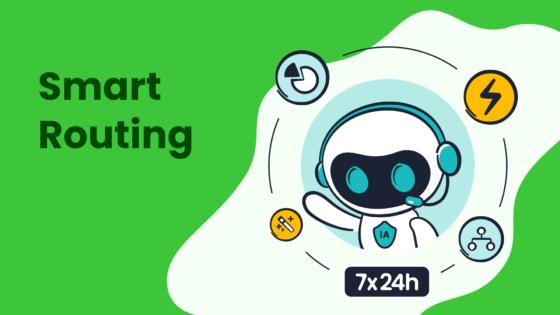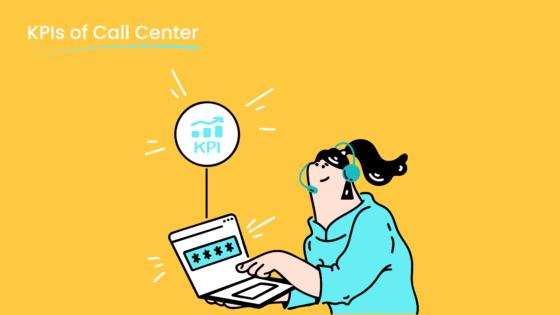How to Train Retail Employees to Handle Angry Customers


Imagine this: a customer walks into your store, visibly upset, and starts venting their frustration. How your employees respond in that moment can make or break the situation. Customer service training for retail employees equips them with the tools they need to handle such challenges confidently. When employees know how to de-escalate conflicts and connect with customers on a human level, the results are transformative. You’ll see improved customer satisfaction, fewer complaints, and a boost in employee morale. Tools like Sobot’s contact center solutions can even help streamline this training, ensuring your team is prepared for anything.
Understanding Angry Customers

Common Types of Angry Customers
When dealing with difficult customers, you’ll encounter a variety of personalities. Some may express their frustration through verbal or even physical abuse, while others might resort to actions like shoplifting or vandalizing. You might also face customers who jump queues, make spurious product returns, or abuse company resources. Then there are those who complain excessively, sometimes without valid reasons. Recognizing these behaviors early can help you and your team respond appropriately and maintain control of the situation.
Recognizing Triggers and Behaviors
Understanding what sets customers off is key to managing their emotions. Common triggers include long wait times, poor product quality, or a lack of clear communication. You might notice certain behaviors, like raised voices, crossed arms, or pacing, that signal rising frustration. By staying alert to these signs, you can step in before the situation escalates. Training your team to identify these triggers and behaviors ensures they’re prepared to handle even the most difficult customers with confidence.
The Role of Emotional Intelligence in Customer Service
Emotional intelligence (EI) plays a huge role in improving customer service outcomes. When your employees can empathize with customers, they create a more positive customer experience. Research shows that empathy and emotional intelligence correlate strongly with customer satisfaction, with empathy alone scoring a correlation of 0.502. Other factors like reliability, responsiveness, and assurance also contribute significantly. By fostering EI in your team, you’ll not only improve their ability to handle difficult customers but also enhance the overall quality of your service.
Essential Skills for Handling Difficult Customers
Communication Skills for De-escalation
When emotions run high, communication becomes your most powerful tool. To manage difficult customers effectively, you need to focus on de-escalation techniques that calm the situation and restore order. One of the most effective ways to defuse tension is by practicing active listening. This means giving your full attention to the customer, nodding to show understanding, and repeating back what they’ve said to confirm you’re on the same page. For example, if a customer says, “I’ve been waiting for 30 minutes, and no one has helped me,” you could respond, “I understand you’ve been waiting for a long time, and that must be frustrating. Let me assist you right away.”
Using positive language also works wonders. Instead of saying, “We can’t do that,” try, “Here’s what we can do to resolve this for you.” This approach reassures the customer that their issue is solvable. Staying calm is equally important. Your calm demeanor can influence the customer to mirror your behavior, making it easier to address their concerns. According to the study "Frustration and Anger Mitigation After Service Failure," explanations from employees can significantly reduce customer frustration, especially when the issue stems from the service context. This highlights the importance of clear, empathetic communication in customer service.
Here’s a quick overview of essential communication skills for de-escalation:
| Skill | Description |
|---|---|
| Active Listening | Demonstrates genuine care for customer concerns, helping to defuse tension and open dialogue. |
| Empathy | Validates customer feelings, reducing emotional charge with phrases like 'I hear you.' |
| Staying Calm | A calm demeanor can have a calming effect on customers; requires self-awareness and emotional regulation. |
| Positive Language | Framing responses positively helps reassure customers that their issues are solvable. |
| Setting Boundaries | Establishing limits respectfully ensures productive interactions, especially in extreme cases. |
| Offering Solutions | Providing clear, actionable solutions restores the customer's sense of control and demonstrates commitment to resolution. |
By mastering these skills, you’ll not only handle difficult customers more effectively but also improve customer satisfaction and build rapport.
Practicing Empathy and Active Listening
Empathy is the cornerstone of excellent customer service. When you acknowledge a customer’s frustration, you validate their feelings and make them feel heard. For instance, saying, “I can see why this situation is upsetting for you,” can immediately soften their tone. Research shows that 60% of business issues stem from poor communication, which underscores the importance of active-listening skills in customer interactions. Engaging in active listening involves more than just hearing words; it’s about understanding the emotions behind them. This approach not only addresses the customer’s concerns but also facilitates quicker problem-solving.

Active listening and empathy development can be enhanced through employee training programs. Role-playing exercises, for example, allow retail staff to practice these skills in a controlled environment. Tools like Sobot’s Voice/Call Center can further support this training by providing real-time call monitoring and feedback. With features like AI-powered voicebots and smart call routing, Sobot ensures your team is equipped to handle even the most challenging customer interactions.
Conflict Resolution Techniques for Retail Employees
Conflict resolution is an essential skill for retail employees. When dealing with difficult customers, it’s crucial to focus on finding solutions rather than assigning blame. Start by identifying the root cause of the issue. Ask open-ended questions like, “Can you tell me more about what happened?” This encourages the customer to share details, making it easier to address their concerns.
Once you understand the problem, offer a clear and actionable solution. For example, if a customer is upset about a defective product, you could say, “We can replace this item for you or issue a refund—whichever you prefer.” This approach restores the customer’s sense of control and demonstrates your commitment to resolving the issue. Conflict resolution training, such as workshops or scenario-based exercises, can help train employees to handle these situations with professionalism and confidence.
Sobot’s AI solutions can also play a role in conflict resolution. By integrating omnichannel support, Sobot enables your team to manage difficult customers across multiple platforms seamlessly. Features like AI copilots assist agents in generating empathetic responses, while AI insights provide data-driven recommendations for improving service quality. These tools not only enhance employee training but also ensure consistency in customer interactions.
Practical Training Methods for Customer Service
Role-Playing Scenarios for Real-Life Challenges
Role-playing is one of the most effective ways to prepare your team for handling difficult customer interactions. It allows employees to practice their skills in a safe, simulated environment before they face real-world challenges. Imagine setting up a scenario where a customer is upset about a delayed order. Your employee can practice calming the customer, offering solutions, and maintaining professionalism—all without the pressure of an actual confrontation.
Why does this work so well? Studies show that role-playing helps trainees rehearse and refine their skills, making them more confident and competent on the job. It’s like a dress rehearsal for a play—when the big moment comes, they’re ready. On-the-job performance improves significantly when employees have already demonstrated their abilities in these practice sessions. This method ensures they’re not just learning in theory but are prepared to apply their skills in real-life situations.

To make these scenarios even more impactful, you can use tools like Sobot’s Voice/Call Center. With features like call recording and AI-powered voicebots, you can simulate real-life situations and provide employees with a realistic training experience. This approach not only enhances their skills but also builds their confidence in handling even the most challenging customer service scenarios.
Role-Playing and Feedback for Continuous Improvement
Role-playing alone isn’t enough. Feedback is the secret ingredient that turns practice into mastery. After each session, take time to review what went well and what could improve. For example, if an employee struggled to stay calm during a heated exchange, you can point that out and offer tips for managing emotions better next time. Constructive feedback helps employees refine their techniques and grow more confident in their abilities.
The numbers back this up. Studies reveal that self-efficacy scores improve significantly after employees engage in role-playing and receive feedback. In fact, satisfaction levels with this method often exceed 80%, showing how much employees value this hands-on approach. They feel more prepared, and it shows in their performance.
Sobot’s Voice/Call Center can make this process even smoother. Its real-time call monitoring and analytics allow you to review employee interactions and provide targeted feedback. You can even use AI copilots to guide employees during live calls, offering suggestions in real time. This combination of role-playing and feedback ensures your team is always improving, leading to better customer service outcomes.
Scenario-Based Training with Sobot's Voice/Call Center
When it comes to retail training, nothing beats scenario-based exercises that mimic real customer interactions. These exercises help employees think on their feet and adapt to different situations. For instance, you could create a scenario where a customer demands a refund for a product they didn’t purchase. Your team can practice verifying the claim, explaining company policies, and offering alternative solutions—all while maintaining a calm and empathetic tone.

Sobot’s Voice/Call Center takes scenario-based training to the next level. With its AI-powered voicebots and smart call routing, you can create dynamic training modules that adapt to your team’s needs. Employees can practice handling various customer service scenarios, from simple inquiries to complex complaints, in a controlled environment. The platform’s real-time speech recognition and call tracking features provide valuable insights, helping you identify areas for improvement.
By integrating Sobot’s solutions into your training program, you ensure consistency and efficiency. Your team will not only learn how to handle angry customers but also develop the skills to turn negative experiences into positive ones. This kind of training doesn’t just prepare your employees—it empowers them to excel.
Empowering Employees Through Company Policies
Establishing Clear Guidelines for Handling Complaints
Clear guidelines are the backbone of effective customer service. When your employees know exactly how to handle customer complaints, they can act confidently and consistently. This clarity not only reduces confusion but also speeds up service recovery. For example, if your policy states that refunds must be processed within 24 hours, your team can act quickly without seeking approval at every step.
Encouraging customers to voice their complaints might seem counterintuitive, but it’s a smart move. Studies show that only 1 in 25 unhappy customers actually complain to the business. The rest? They leave quietly, and 91% of them never return. By making it easier for customers to share their concerns, you gain valuable insights into recurring issues. These insights can help you improve your processes and reduce complaints over time. Plus, when complaints are resolved quickly—ideally within five minutes—customers are more likely to stay loyal and even spend more in the future.
Empowering Employees to Make Decisions
Empowering your employees to make decisions is a game-changer. When your team has the authority to resolve issues on the spot, it creates a smoother experience for everyone involved. Take the Ritz-Carlton, for example. They allow employees to spend up to $2,000 per guest to fix problems. While this might not be feasible for every business, the principle remains the same: trust your team to do what’s right.
This empowerment doesn’t just benefit your customers. It boosts employee morale and job satisfaction, which directly impacts customer satisfaction. Research shows that empowered employees are 67% more engaged and willing to go the extra mile. When your team feels valued and trusted, they’re more likely to exceed expectations, creating positive experiences that keep customers coming back.
Leveraging Sobot's AI Solutions for Consistency
Consistency is key in customer service, and this is where Sobot’s AI solutions shine. With features like omnichannel support, Sobot ensures your customers receive the same high-quality service across all platforms, whether it’s email, chat, or voice. This uniformity builds trust and enhances customer satisfaction.

Sobot’s AI doesn’t just stop at consistency. It uses real-time data analysis to understand customer preferences and predict their needs. This proactive approach can increase automated resolution rates by up to 35%, freeing your team to focus on more complex issues. Plus, Sobot’s ethical AI ensures accurate and transparent interactions, so your customers always feel respected and valued.
By integrating Sobot’s solutions into your service recovery strategies, you empower your team with tools that make handling customer complaints easier and more effective. The result? Happier customers, more confident employees, and a stronger brand reputation.
Supporting Employee Well-Being and Resilience

Promoting Self-Care and Stress Management
Taking care of your employees’ well-being isn’t just a nice-to-have—it’s essential for building a resilient team. Stress can pile up quickly in retail, especially when handling stressful situations like angry customers or tight deadlines. Encouraging self-care practices helps employees recharge and stay focused. Simple steps like promoting regular breaks, offering flexible schedules, or even providing access to wellness programs can make a big difference.
Resilience, the ability to bounce back from challenges, plays a key role here. Studies show that resilience can be learned and developed, helping employees respond productively to setbacks. Workers with higher resilience experience less job strain and are better equipped to handle demanding environments. They’re also less likely to face issues like depression or productivity loss. By fostering resilience through stress management training, you create a team that thrives under pressure.
Offering Emotional Support and Resources
Retail employees often deal with emotionally charged situations, so providing emotional support is crucial. You can start by creating a safe space where employees feel comfortable sharing their concerns. Offering resources like counseling services or stress-relief workshops shows your team that you care about their mental health.
Engaged employees who aren’t thriving are 61% more likely to experience burnout and 48% more likely to feel daily stress. This highlights the importance of addressing emotional well-being proactively. When employees feel supported, they’re better equipped to manage their emotions and deliver exceptional customer service.
Recognizing and Rewarding Employee Efforts
Recognition is a powerful motivator. When employees know their hard work is appreciated, they’re more likely to stay engaged and perform at their best. For example, organizations with recognition programs see 31% lower voluntary turnover, which leads to a more stable and experienced workforce. Employees who believe they’ll be recognized are 2.7 times more likely to be highly engaged, directly improving customer service performance.
Recognition doesn’t have to be complicated. A simple “thank you” or a shout-out during team meetings can go a long way. You can also implement formal programs like employee-of-the-month awards or performance bonuses. These efforts boost productivity, enhance team culture, and create a ripple effect that improves customer interactions.
Customer service training is a game-changer for handling angry customers. It equips your team with the skills to de-escalate conflicts, resolve issues quickly, and build stronger customer relationships. The benefits are undeniable:
- Well-trained employees reduce customer complaints and improve satisfaction.
- Confident teams handle calls faster and achieve better first-contact resolutions.
- Lower churn rates and operational costs boost overall efficiency.
By implementing strategies like role-playing and feedback, you create a supportive environment where employees thrive. Tools like Sobot’s Voice/Call Center make this process even smoother. With features like AI-powered voicebots and real-time call monitoring, your team can practice, improve, and deliver exceptional service consistently. Empower your employees today, and watch your customer satisfaction soar!
FAQ
How can I help my employees stay calm when dealing with angry customers?
Encourage them to take deep breaths and focus on the issue, not the emotions. Role-playing exercises can help them practice staying composed. You can also use tools like Sobot’s Voice/Call Center to monitor interactions and provide real-time guidance. 🧘♂️
What’s the best way to train employees in empathy?
Start with role-playing scenarios that mimic real-life situations. Teach them to use phrases like, “I understand how you feel.” Active listening exercises also help. Sobot’s AI copilots can assist by suggesting empathetic responses during live interactions, making training even more effective.
How do I measure the success of customer service training?
Track metrics like customer satisfaction scores, resolution times, and complaint rates. Use tools like Sobot’s analytics to monitor employee performance. Regular feedback sessions and customer surveys can also provide valuable insights into how well your team is handling angry customers.
Can AI tools really improve customer service training?
Absolutely! AI tools like Sobot’s Voice/Call Center simulate real-life scenarios, provide real-time feedback, and analyze performance. They help employees practice and improve faster. Plus, features like AI-powered voicebots ensure consistent training across your team, making it easier to handle tough situations.
What should I do if an employee struggles with handling angry customers?
Provide additional training and one-on-one coaching. Use feedback from tools like Sobot’s call monitoring to identify specific areas for improvement. Encourage them to practice stress management techniques and remind them that it’s okay to ask for help when needed. 💪
See Also
Excelling at Live Chat Strategies for Retail Success
Implementing Shopify Live Chat for Retail Businesses
Effective Management Tips for Live Chat Agents
